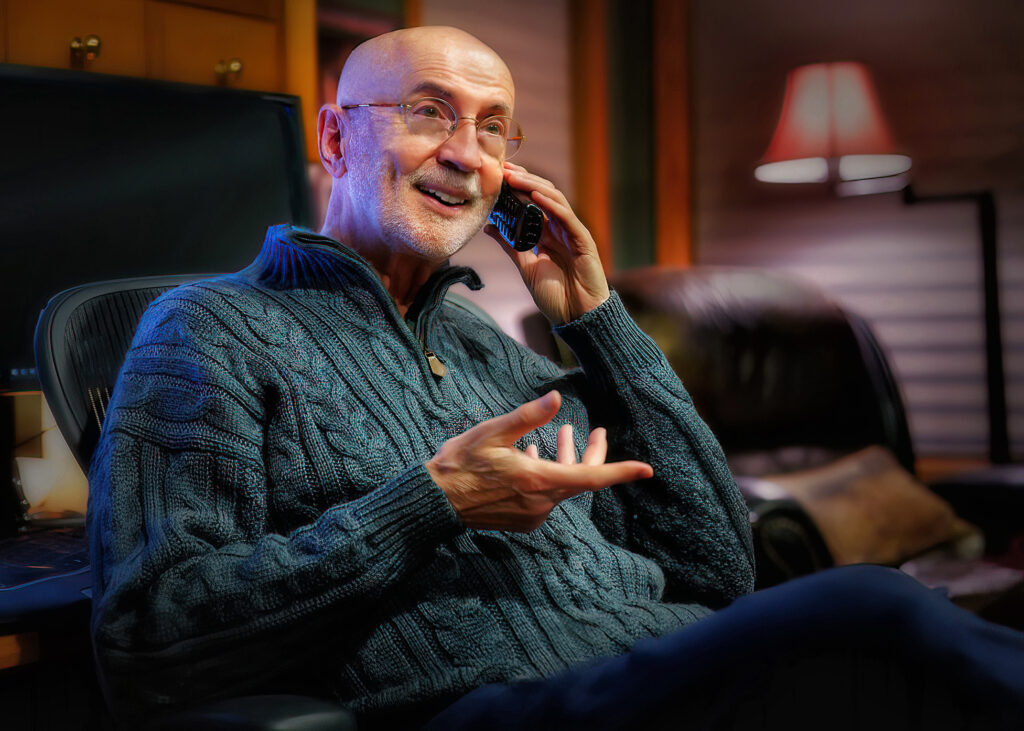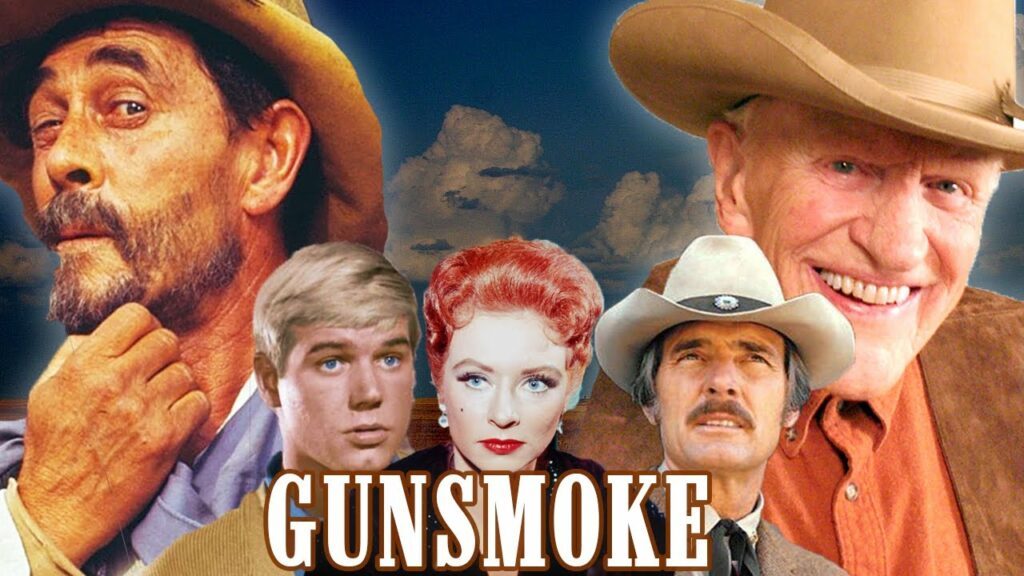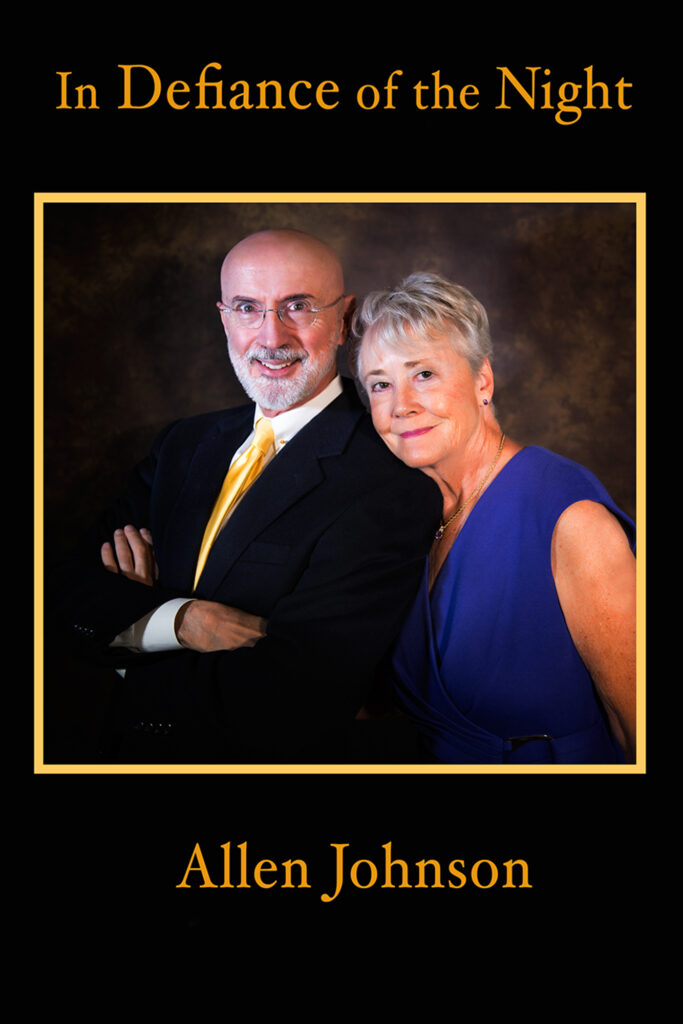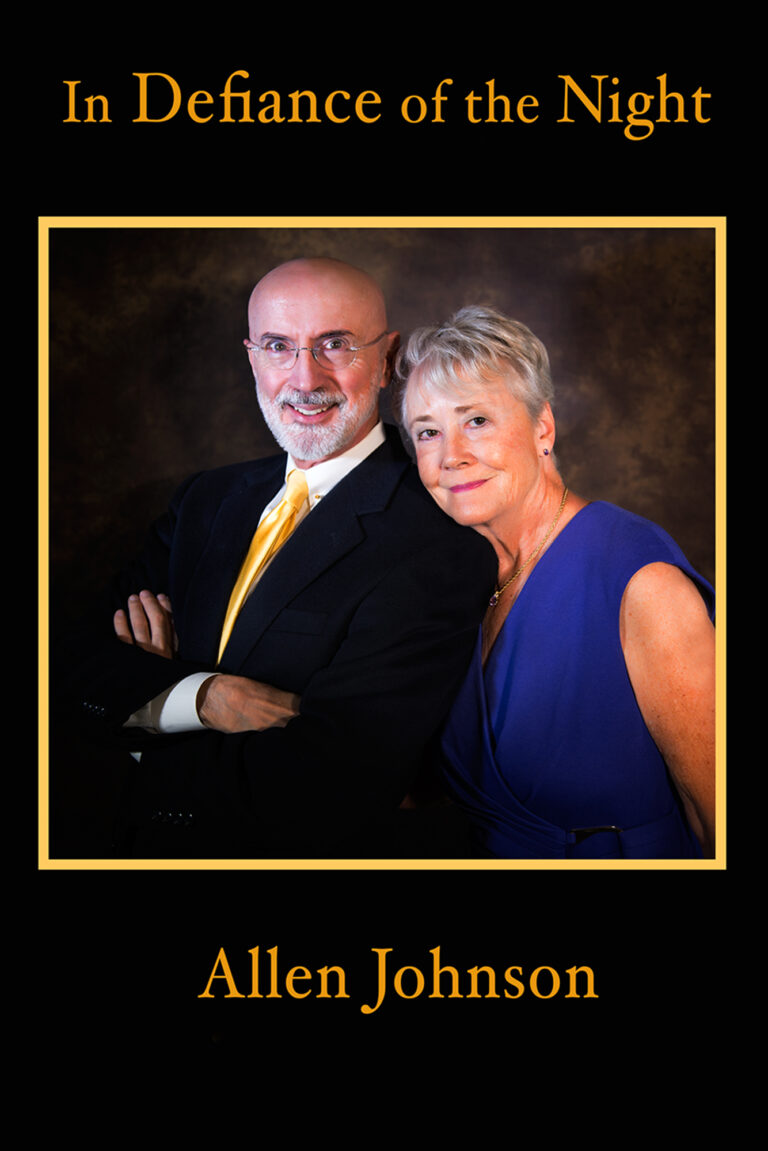Sulking doesn’t work. Nor does railing, grousing, or whining. There is only one way to know when you’ve stopped being sick and started being well. It’s the instant you ask, “How can I serve?”
For months, I was surrounded by doctors, nurses, therapists, and radiologists. Their sole task was to serve me: to heal my wounds, strengthen my gate, and raise my spirits. I honor them all. The last time I felt so pampered was when my mom cradled me in her arms and whispered, “I love you, son.”
Although I’m fond of being coddled, nesting there is akin to remaining infantile. What a horror that would be. Children know this. Some of their earliest words are a call for independence: “I can do it, let me try, give me a chance.” And then comes the most beautiful phrase of all: “I want to help.” That’s the first mark of a maturing child.
The magic of serving is its therapeutic power. You are no longer thinking about your desires—especially your greed, your status, your power. You are thinking about the intellectual and spiritual well-being of another, which is the definition of love.

In the first chapter of this narrative, I reported my first action after being diagnosed with bladder cancer. I telephoned a neighbor who, along with another parent, wanted me to teach their children how to write. Even then—before my six-hour operation, before my daily walks, before my weekly immunotherapy sessions—I knew I had to shake up my brain. I had to serve to be well.
***
At our first class gathering, I greeted three timid but endearing young people, who I will call Todd, Sarah, and Jason. The first two were seventh graders; Jason was a nineth grader. Although I refused to be paid for my tutoring, the parents could not resist sending their children with gifts of cookies, flowers, and persimmons. Coddled again.
For the first assignment, I invited the students to compose a one-page fictional story beginning with the sentence “Chris was no ordinary boy” or “Chris was no ordinary girl.”
To kindle their thinking, I decided to complete the assignment myself. Here’s the story I wrote:
The Boy Who Could Not Lie
By Allen
Chris was no ordinary boy. He was unlike all other children in one splendiferous respect: he could not lie. That’s not to say he was never tempted. He simply lacked the heart for it. Take the time he tugged on Amy’s pigtails and made her squeal.
There was no escaping his mischief. Mrs. Rachett, his sixth-grade teacher, caught a flash of the scene. Her voice was scolding. “Christopher Emmett, what did you do to Amy?”
Chris stood and raised his head to gaze into his teacher’s eyes. “I’m sorry, Mrs. Rachett. I yanked on Amy’s hair.”
“And why did you do that, young man?”
Chris shook his head. “I could say the devil made me do it, but that would be untrue.”
“And what would the truth be?”
On a long sigh, Chris said, “I did it because I was bored. I thought making her yelp might turn a common day into something more…perky.”
Chris sank into his seat. He was not proud of himself. And he responded as he always did when he crossed the line into a realm he called “the land of knuckleheads.” He apologized. He leaned over his desk and whispered into his classmate’s ear. “I’m sorry, Amy. What I did was mean and hurtful, and I’ll never do it again. That’s a promise.”
He kept his word, which was the wonderous thing about Chris. He never lied, and he never reprised abuse. As the years passed, there were fewer sins to commit and fewer apologies to render.
He was a boy who became a nobleman—in the purest, most trustworthy sense of the word.
***
I was amazed by the three stories submitted by my students. Jason shared a yarn about a boy who hopped on a city bus that magically transformed into a jungle, replete with sleeping tigers, venomous snakes, and poisonous flowers. Sarah unfolded a story about a girl whose emotions involuntarily changed with the weather.
I equally enjoyed all tales, but to give you a better idea of their artistic invention, here’s the narrative posted by thirteen-year-old Todd.
I Can’t Believe My Eyes
By Todd
Chris was no ordinary boy. If you saw him passing by, you wouldn’t know he was remarkable. In fact, he looked completely normal. So what made him so incredible? The color of his eyes changed with his emotions. He didn’t want to appear weird, so he learned to keep his emotions stable when talking to someone. At school he tried to be happy so his eyes wouldn’t change color.
Chris wondered what would happen if he let his emotions shift. How would other people react when he revealed his ability? What if he was mocked every day? In the end, he decided to keep his secret.
Soon enough, he found an advertisement for something known as colored contacts. Apparently, they changed eye colors. Chris couldn’t believe it. Was this really possible? Even if the contacts were used for decoration, he could just choose a common tint. He would attempt to find a pair the next day.
Chris’s life would change forever when he tried the contacts. He immediately decided to buy a pair. He chose a brown color because brown was the most common eye color. Then, he studied himself in the mirror. He thought of something happy and something sad. He could not detect a change of color.
Yes, Chris’s life changed, but not in the way expected. One day, he left home without his colored contacts. He went to school and talked to one of his friends. He was happy, but then his friend started telling him something sad. Thinking his lenses would hide his emotions, he allowed himself to feel sad. His eyes turned blue. Of course, his friend noticed and was extremely confused.
His friend Paul exclaimed, “Wow, that’s pretty amazing! I’ve never seen anyone do something like that before. Are you doing it intentionally?”
Knowing he couldn’t lie out of the mess, Chris decided to tell his friend the truth. “Nope! They’re my natural eyes. Pretty weird, huh?”
“Some people might say that,” Paul said, “but I think it’s really cool.”
After this conversation, Chris decided to never use his colored contacts again.
***
At the next class session, I offered Todd a knowing smile. “I take it your last line flags the importance of being ourselves,” I said, “regardless of our flaws.”
Todd shook his head. “I really wasn’t thinking about a moral,” he said. “I just needed to end the story.”

I’m not so sure. In any case, I was captivated by Todd’s creativity. Although my memory is rusty, I think I was still unscrambling my ABCs at his age. There may be a cultural reason for my stunted imagination. In 1959, I was Todd’s age when the most popular TV shows were westerns: Gunsmoke, Wagon Train, and Have Gun—Will Travel. Today, the blockbusters are comic-book superheroes like Ms. Marvel and The Boys, along with science-fiction horror dramas including Stranger Things and Resident Evil. Could the visual and emotional stimulation spark inspiration?
Perhaps, but that’s beside the point. Whatever the reason, my students did not lack creativity. That tickled me. And the tickles made me laugh. And the laughter made me well.


